More than half the year has now gone: Have you reached at least half the goals you set for 2015 yet?
Summer is a great time to be healthy and/or lose weight because foods are light, fruits and vegetables are at their prime and the weather provides no excuses for avoiding exercise.
FRUITS AND VEGETABLES
ALWAYS IN SEASON FOR HEALTH
Summer offers lots of variety in fruits and veggies.
Fresh fruits and vegetables are most nutritious and best tasting when they are picked at their peak. It is thus important to recognize the signs of good quality and freshness.
Before buying any product, make sure it is of high quality. Take time to observe the environment where produce items are located. Is the area organized and clean? Some fruits and vegetables need to be kept at a certain temperature to maintain peak freshness.
Bruised or wilted foods suggest they were not handled properly and/or they are past their prime. Damaged areas or bruises can increase spoilage and such produce tend to lose nutrients.
Picking your own selection of fruits or vegetables tends to increase quality when compared to buying prepackaged fruits or vegetables that have already been bagged for convenience.
Often, using frozen fruits or vegetables is another option. Frozen fruits and vegetables are a convenient way to store produce items for extended periods of times. It might also be more practical to buy frozen fruits that may not always be available fresh.
Canned fruits can also offer convenience. They already been cooked, sealed and processed and thus any nutrients can be retained due to peak quality picking and efficient canning.
When it comes to fresh, frozen or canned produce, use what best fits your lifestyle. The main goal is incorporate a variety of fruits and vegetables into your diet and aim for at least five servings a day.
Am I talking about a vegetarian diet? Not necessarily. The 2010 American Dietary Guidelines encourage Americans to consume more of a plant-based diet to maximize nutrient intake. This simultaneously allows a diet lower in calories, fats, and added sugars. A plant-based diet is one that is largely made up of fruits, vegetables, grains, nuts, and legumes and made up minimally of animal-based products such as meat, fish, and poultry.
Benefits:
- Cholesterol is found in animal products. By limiting your intake of animal products, you are decreasing the amount of dietary cholesterol you consume. Cholesterol is still found in animal byproducts such as milk or cheese.
- Associated with lower cholesterol, lower risk of developing heart disease, lower blood pressure, lower risk of developing hypertension, and lower risk of developing type 2 diabetes.
- Protein is not a problem: it can be found in a variety of sources, not just meat, poultry, or fish. (Such as legumes, nuts, seeds and grains).
- Fruits and vegetables are great examples of nutrient-dense foods meaning they provide a lot of vitamins and minerals at a lower calorie count.
- Those who tend to eat mostly vegetarian based nutrients, tend to have a lower body fat and fewer rates of cancer.
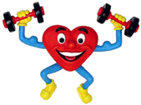
What to watch out for?
- Restricted diets of any type can pose health risks so it’s important to make sure you are getting all of the nutrients you need. Strict vegetarians or vegans may need to ensure they are consuming adequate vitamins that are typically more bioavailable from animal sources, such as Vitamin B12 and Iron.
- With any diet, it’s important to eat a variety of foods from a variety of categories to get all of the nutrients your body uses.
Thinking of adopting a more plant-based diet?
- Take your favorite meals and figure out ways to make them meatless. Vegetable lasagna, Enchiladas, and Stir-fry are some great meals to start with. And of course, you can just scale down the animal-based portions instead.
- Consider going meatless on Mondays. Meatless Mondays are a growing trend by those adopting a plant-based diet.
- Check out local vegetarian restaurants- you may be surprised to find out you really can broaden your palate after all!
- Need inspiration? Don’t forget to look at the internet for some great recipes. Vegetarian Times online or magazine can get you started. Also at VT, you can find a list of substitutions: http://www.vegetariantimes.com/resources/ingredient_sub_list/
Some world class athletes are vegetarian or flexitarian?
Just to name a few:
Bill Pearl, four time Mr. Universe Winner
Joe Namath, legendary quarterback
Martina Navratilova, tennis player
Robert Parish, NBA basketball player
Dave Scott, Ironman World Champion multiple times
Billie Jean King, tennis player
Tony Gonzales, NFL player
_________________________________________________
Recipe of the Month:
Vegetarian BBQ Tacos
(Serves 4)
(I had to add some parallel to BBQ, after all July is the month we celebrate American Independence – and what better way than to flavour it up with Barbeque).BBQ Sauce
1 1/2 Tbs. ketchup
1 Tbs. Worcestershire sauce
1/2 tsp. honey
1/8 tsp. hot sauce, or more to taste
Tacos
1 1/2 Tbs. vegetable oil
1 cup sliced portobello mushrooms
1/2 cup diced green bell pepper
1/2 cup shredded carrots
1 cup soy crumbles; consider various brands and types such as gluten, tempeh, or seitan crumbles or vegetarian ‘meats’ that resemble your favorites. Quorn™ makes a faux chicken that many vegetarians and non-vegetarians alike enjoy!
4 6-inch corn or flour tortillas, warmed
2 Tbs. chopped red onion
1/3 cup tomatoes, halved
1/2 cup shredded lettuce of choice
1/2 cup shredded Cheddar cheese
1 Tbs. pickle relish, optional
DIRECTIONS
To make BBQ Sauce: Combine all ingredients in bowl.
To make Tacos: Heat oil in nonstick skillet over medium heat. Add mushrooms, bell pepper, and carrots, and cook 3 minutes, or until vegetables are softened, stirring halfway through. Add soy crumbles and 2 Tbs. BBQ Sauce. Cook 8 minutes, or until soy crumbles are browned.
Fill tortillas with soy crumble mixture. Top with red onion, tomatoes, lettuce, cheese, and relish, if desired. Serve with BBQ Sauce.
Per Serving:
| Calories | 178 |
| Protein | 12g |
| Total Fat | 10g |
| Saturated Fat | 3.5g |
| Carbs | 10g |
| Cholesterol | 15mg |
| Sodium | 409mg |
| Fiber | 3g |
| Sugar | 4g |
____________________________________
Whatever way you choose to get active, remember to always focus on Hydration. Besides maintaining a hydrated state daily, in this very hot and humid Georgian climate, it especially important to focus on Hydration during Exercise …
Staying hydrated during exercise is believed to delay fatigue and can help prevent heat-related illness. Adequate hydration can help decrease fluid losses, decrease strain on the heart and cardiovascular system, and enhance performance.
Hydrating before exercise is important, however, replenishing lost fluids, or rehydration, is effective in enhancing performance and retaining the balance of fluids in the body. Drinking cold water as well as sports drinks can help to maintain proper body temperatures during exercise, especially in hot environments. Excessive fluid intake combined with inadequate salt intake can lead to a dangerous condition known as hyponatremia. To rehydrate quickly after exercise, an athlete can consume 120-150% of fluids lost while consuming sodium to help retain fluids.
Sports drinks during exercise may provide some benefits. The key ingredients in sports drinks are water, carbohydrates, and electrolytes. Sports drinks help restore nutrients that are lost during sweat and are considered a functional food for athletes. The sugar content of most sports drinks is between 5-10% and calories are often 6-12 per ounce. The electrolytes are usually sodium, chloride, potassium, and phosphorus. Sports drinks should not be confused with “Energy” or “Energy Sports” drinks that are now in the market. Research suggests a 6-8% carbohydrate solution containing a combination of glucose, fructose, sucrose, or glucose polymers are the most effective for those who need carbohydrate replacement.
The beverage of choice also depends on the type of exercise and environment:
Prolonged endurance events utilize glycogen and blood glucose as the main source of energy à carbohydrate replacement is beneficial
Environments in which dehydration or hypothermia might be a cause for concern à water replacement is beneficial
Prolonged exercise in the heat where an athlete losses nutrients through sweatà electrolyte replacement is beneficial
Fluid-Carboydrate Corner: Beverages
| Beverages containing fluid and carbohydrates: 8 oz. serving | |||||
| Beverage | Carbohydrate Source | % carbs | Grams carbs | Sodium (mg) | Potassium (mg) |
| Gatorade Thirst Quencher | Sucrose, Glucose, Fructose | 6 | 14 | 110 | 30 |
| Gatorade Endurance Formula | Sucrose, Glucose, Fructose | 6 | 14 | 200 | 90 |
| Gatorade Energy Drink | Maltodextrin, Glucose, Fructose | 23 | 53 | 133 | 20 |
| Accelerade | Sucrose, Trehalose (disaccharide) | 6 | 15 | 120 | 15 |
| PowerAde | High-fructose Corn Syrup | 8 | 19 | 55 | 30 |
| Lucozade Sport | Glucose, Maltodextrin | 6 | 15 | Trace | Trace |
| All Sport | High-fructose Corn Syrup | 8 | 20 | 80 | 50 |
| Ultima Replenisher | Maltodextrin | 1.5 | 3 | 37 | 100 |
| Coca-Cola | High-fructose Corn Syrup; Sucrose | 11 | 26 | 9.2 | Trace |
| Diet Soft Drinks | 0 | 0 | 0 | 0-25 | Low |
| Orange Juice | Fructose, Sucrose | 11 | 26 | 2.7 | 510 |
| Water | 0 | 0 | 0 | Low | Low |
Wishing y’all a Happy 4th … Be safe, Train Strong, Replace Sweat — Hydrate !!
ILANA

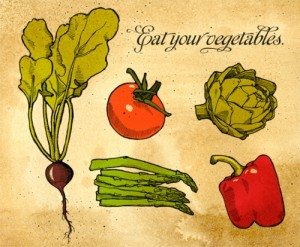
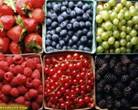
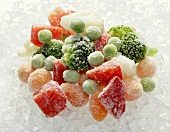
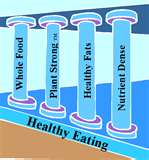
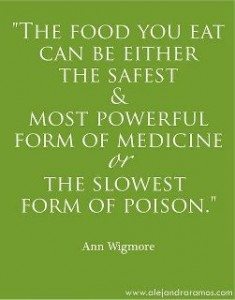


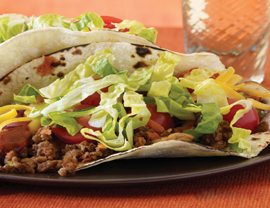

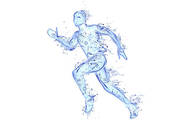
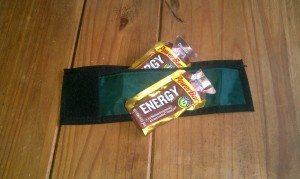
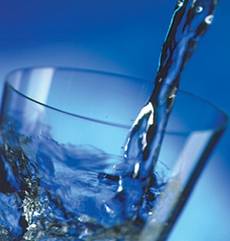
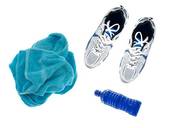


Love the letters! keep it up
I found out about this newsletter from Dance It Off. Please sign me up for the newsletter.
Thank you,
Bonnie